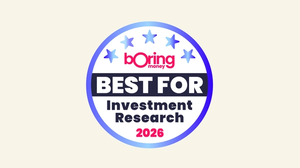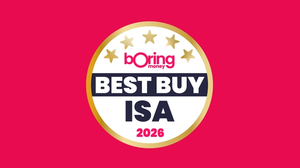Choosing companies fit for the future
29 July, 2022
Sponsored by Invesco
By Ciaran Mallon, Fund Manager at Invesco.
Key takeaways
1. Amid rising interest in Environmental, Social and Governance (ESG), there has been much focus in recent years on the need to transition to a low-carbon world. While transition may be at the heart of the energy industry, it is apparent in a lot of other sectors too.
2. When investing in companies in transition we have to look at the scale of the future opportunity as well as looking back to the record of management in introducing change so far.
3. As investors, we think it pays to look at which direction the wind is blowing in each industry, how companies are working to ensure their relevance in the future and whether they have the wherewithal, the skill and the will to make the necessary transitions.
One of the biggest challenges for investors is that we judge companies by their track records. However, the world is always changing, and a company’s value lies in its future success.
When managing the Invesco Select Trust plc UK Equity Share Portfolio, my co-manager, James Goldstone, and I believe that we need to pick companies capable of adapting to an ever-changing environment.
I find it fascinating how many of the companies we own are in sectors in transition. Take National Grid and SSE, for example. We think they have a vital part to play in building the electricity infrastructure we need if we are to switch from fossil fuels to renewables and transition to a low-carbon world.
Consider that an electric vehicle can use as much power as a home. Nearly all the cars on UK roads will be powered by electricity eventually. There are 32 million cars¹ and 27 million homes² in Britain today. This gives you a sense of the scale of the challenge. We therefore believe National Grid and SSE have huge growth opportunities. We also own BP, which expects to invest over 40% of its capital expenditure on transition growth businesses by 2025³.
What’s NEXT?
Transition is apparent in many other sectors, too. When investing in companies in transition we must consider the scale of the future opportunity. We must look back – at the record of managements in introducing change so far. And we must monitor progress carefully against company plans and pledges.
Transition can be expensive. The companies in transition that we tend to favour generate strong profits; their managers use resources intelligently and borrow sensibly.
We consider clothing and homeware retailer NEXT to be a good illustration. NEXT is in a treacherous sector, as the number of retailers falling into liquidation each year illustrates. Despite this, it has continued to generate strong cashflow even while investing in transformation. This year NEXT expects to generate £220m of surplus cash⁴.
We believe NEXT has a strong management team that has consistently done two things well: anticipate changes in the retail environment and allocate capital prudently in response. In 1986 it bought mail order company Grattan. In 1988 it launched the NEXT directory and 11 years later an online directory. It is now enabling other retailers to benefit from its online retail platform and efficient distribution, leveraging extra value from its infrastructure and years of investment.
Like NEXT, Bunzl’s roots lie in the 19th century. Founded in 1854 as a paper manufacturer, today it is a distribution and services company, operating in 31 countries.
It is likely that Bunzl will have touched your life without you being aware of it. It lies at the functioning heart of many businesses. Buy a coffee and there is a good chance the paper cup, lid and napkin will have been sourced and delivered to the café by Bunzl. The workers on that building site you pass each day may well be wearing safety gear from Bunzl.
The company has grown through intelligent acquisition of other businesses, each of which might focus on a particular industry in a specific area, enabling it to widen its footprint geographically and across sectors.
Its scale offers many advantages. Bunzl can negotiate attractive prices. It can also more readily audit the supply chain to ensure products comply with ethical and sustainability standards. This is becoming a major competitive advantage in a world where environmental, social and governance standards are rising.
We believe Bunzl has scope to grow significantly further still, fully exploiting its logistics expertise and scale.
Changing attitudes
There can be many reasons why companies and industries find themselves in transition. Technology can open avenues of opportunity but also facilitate disruptive competition. Sometimes transition can be driven by changing consumer attitudes.
British American Tobacco (BAT) was founded in 1902, before consumers were aware of the health risks posed by smoking. Today, supported by research showing they pose less risk, the company is developing alternatives to traditional cigarettes. BAT expects to generate £5bn from its “new
category” businesses within the next three years. Meanwhile, this year alone it is expected to return £2bn to shareholders⁵.
We think it pays to look at which direction every industry is heading. In tandem, we also think it pays to explore how companies are working to ensure they remain relevant and whether they have the resources, the expertise and commitment to make the necessary transition successfully.
Want to know more?
Ciaran Mallon co-manages the Invesco Select Trust plc UK Equity Share Portfolio with James Goldstone, both members of Invesco’s UK equities team. Click below to learn more about the investment trust.
Invesco Select Trust plc UK Equity Share Portfolio
Sources:
¹ Vehicle Licensing Statistics, 2021
² Office for National Statistics
³ BP.com, February 2022
⁴ Next PLC, May 2022
⁵ BAT.com, July 2021
Investment risks
The value of investments and any income will fluctuate (this may partly be the result of exchange rate fluctuations) and investors may not get back the full amount invested.
When making an investment in an investment trust/company you are buying shares in a company that is listed on a stock exchange. The price of the shares will be determined by supply and demand. Consequently, the share price of an investment trust/company may be higher or lower than the underlying net asset value of the investments in its portfolio and there can be no certainty that there will be liquidity in the shares.
The use of borrowings may increase the volatility of the NAV and may reduce returns when asset values fall.
The Invesco Select Trust plc uses derivatives for efficient portfolio management which may result in increased volatility in the NAV. In addition, some companies are suspending, lowering or postponing their dividend payments, which may affect the income received by the product during this period and in the future.
The Invesco Select Trust plc UK Equity Share Portfolio invests in smaller companies which may result in a higher level of risk than a product that invests in larger companies. Securities of smaller companies may be subject to abrupt price movements and may be less liquid, which may mean they are not easy to buy or sell.
Important information
This article is marketing material and is not intended as a recommendation to invest in any particular asset class, security or strategy. Regulatory requirements that require impartiality of investment/investment strategy recommendations are therefore not applicable nor are any prohibitions to trade before publication.
Where individuals or the business have expressed opinions, they are based on current market conditions, they may differ from those of other investment professionals and are subject to change without notice.
For more information on our products, please refer to the relevant Key Information Document (KID), Alternative Investment Fund Managers Directive document (AIFMD), and the latest Annual or Half-Yearly Financial Reports. This information is available using the contact details shown.
Further details of the Company’s Investment Policy and Risk and Investment Limits can be found in the Report of the Directors contained within the Company’s Annual Financial Report.
If investors are unsure if this product is suitable for them, they should seek advice from a financial adviser. For details of your nearest financial adviser, please contact IFA Promotion at www.unbiased.co.uk
Issued by Invesco Fund Managers Limited, Perpetual Park, Perpetual Park Drive, Henley-on-Thames, Oxfordshire RG9 1HH, UK. Authorised and regulated by the Financial Conduct Authority.






